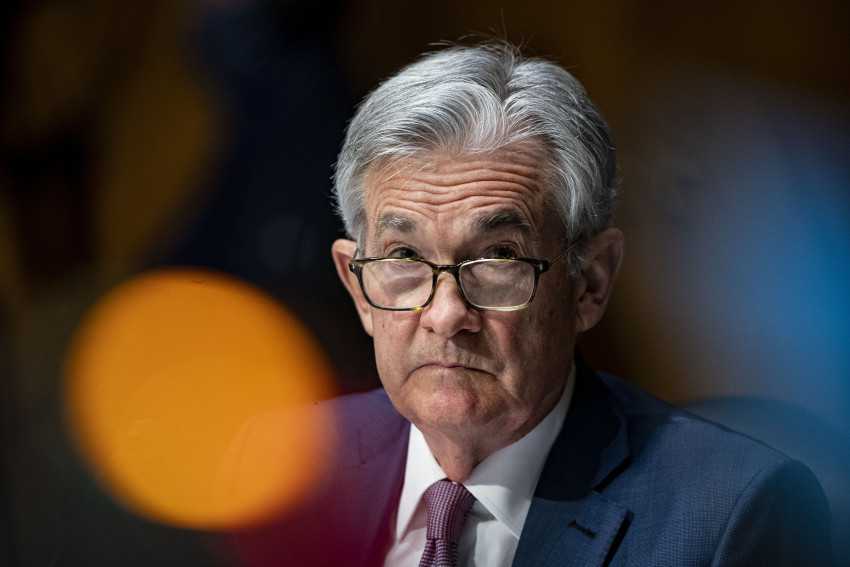Federal Reserve head Powell sees U.S. boom ahead, with COVID even now a risk
14 April, 2021

The U.S. market is poised for a long period of strong development and hiring, the chair of the Government Reserve said within an interview broadcast Sunday, though the coronavirus even now poses some risk.
Chair Jerome Powell, speaking to CBS' “60 A few minutes," also said that he doesn't be prepared to raise the Fed's benchmark interest, currently pegged at nearly zero, this year. And he downplayed the risk of bigger inflation stemming from razor-sharp increases in federal government spending and expanding funds deficits.
“We feel just like we’re at a location where in fact the economy’s about to begin growing a lot more quickly and task creation coming in a lot more quickly,” Powell explained. “This expansion that we’re expecting in the next half of the year will probably be very strong. And work creation, I'd expect to be quite strong.”
In the wide-ranging interview, Powell explained that the Fed is closely learning the development of an electronic dollar, but hasn't yet determined on whether to proceed. Powell said previous month that the central lender wouldn't issue an electronic currency without acceptance from Congress.
Powell noted that roughly a million careers were added in March, when revisions to careers info in January and February are included. The unemployment fee fell to 6% from 6.2%.
“We wish to visit a string of weeks like that,” he said. “That is definitely in the number of possibility.”
Still, there are about 8.4 million fewer careers than prior to the pandemic, and Powell acknowledged that he regularly sees a homeless encampment near to the Fed's headquarters in Washington.
“There’s a lot of suffering out there even now," he said. "And I believe it’s important that, only as a region, we stay and support those people. The market that we’re heading back to will be not the same as the one that we had.”
Powell as well said the primary risk to the overall economy remains to be the pandemic and a good breakdown in safety measures that Americans have largely taken for days gone by year.
The risk ”is that people will reopen prematurely, people will too quickly go back to their old practices, and we’ll see another spike in cases,” he said. “The economy should move ahead. But it can proceed more quickly to the extent we keep carefully the propagate of COVID in order.”
Individually, House Speaker Nancy Pelosi was asked Sunday whether Powell's bullish comments about the economy meant that additional federal government support for the economy, such as for example President Joe Biden's $2.3 trillion infrastructure proposal, was no more needed.
“No,” Pelosi said. “Actually, in the event that you listen very carefully to what he stated, we’re at a location where we will ‘start out to see.' ... And then he also cautions against a surge in the virus. If we’re going to grow the market with confidence, we’ve got to crush the virus."
Powell, on “60 Minutes,” as well underscored that the recovery remains very uneven in the U.S., with the unemployment rate among the lowest-paid out one-quarter of Americans nonetheless approximately 20%, with the disparity falling especially heavily on African Us citizens and Hispanics.
The Fed chair also reiterated the central bank’s threshold for raising its short-term rate: a completely healed labor marketplace where almost everyone who wants employment will get one, inflation at 2% and on track to stay “moderately above 2% for quite a while.”
Achieving those goals and raising fees this season is “very unlikely,” Powell said, despite the fact that he otherwise refused to go over the timing of a liftoff. Instead, he emphasized that a hike will only come when the career and inflation circumstances are met.
With the Biden administration's infrastructure plan following the $1.9 trillion rescue bundle approved by Congress previous month, worries in regards to a potential pickup in inflation have become among some economists. Powell, even so, noted that there were large government deficits following the 2008-2009 financial crisis, “and inflation didn't genuinely react to that.”
Powell did mention the spending plan deficit would eventually must be reduced, but not before economy has completely rebounded.
“The time to achieve that is when the economy is strong and we’re fully recovered and people are working and taxes are rolling in,” he said. “Enough time to carry out that isn't now.”
The Fed chair also said his job is “the same” under Biden as it was under the previous president, Donald Trump. Trump, nevertheless, repeatedly criticized and attacked Powell on Twitter, while Biden rarely mentions Powell and explained the other day that he hasn't yet spoken to Powell personally. Powell's term as chair ends next year.
“I’m reluctant to comment - even indirectly - in elected politicians,” Powell said. "That’s a practice I’ve kept to and I’ve never regretted it."
Source: japantoday.com
TAG(s):
